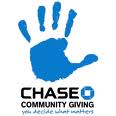 Is it better for a grant-making organization to dole out funds to arts organizations as a result of a closed-door decision-making process in which a panel of “experts” decides which organizations are most worth supporting or to let the public decide by leveraging the power of a popular social networking tool?
Is it better for a grant-making organization to dole out funds to arts organizations as a result of a closed-door decision-making process in which a panel of “experts” decides which organizations are most worth supporting or to let the public decide by leveraging the power of a popular social networking tool?
The latter sounds way less mysterious and more democratic. So why am I feeling so ambivalent about Chase Bank’s use of Facebook to help its community giving department distribute charitable donations?
A couple of days ago, I received a mass email from Old First Concerts, a presenter of classical and experimental chamber music recitals in San Francisco. The email said:
Please Vote For Old First Concerts
Chase Community Giving Supports Non-Profits
Please Vote Today: Voting Ends July 12, 2010
Our Non-Profit Name: Old First Center For the Arts
Chase Community Giving is once again donating $5 million to 200 worthy non-profit organizations. The top non-profit will receive $250,000, the next 4, $100,000 and 195 non-profits will get grants of $20,000. The winners will be selected by people like you voting on Facebook for the organizations you feel are most worthy.
Old First Concerts receives its support from government and foundation grants, as well as individual contributions, along with the 50% of our operating revenue that comes from ticket sales. As a result of the economic downturn, many foundations and government agencies have had to reduce the amount of support they offer. Receiving one of the Chase Community Giving grants would provide us with significant funding to continue our mission. Here’s how you can help:
• Vote for us (by July 12) on Facebook: Click here to vote
• Forward this email to others
• Encourage your Facebook friends to vote for us (e.g., wall postings)
Thank you for your ongoing support of emerging musicians and affordable concerts in San Francisco.
The money on offer is significant and I love the work that Old First Concerts does. So I dutifully followed the link and tried to vote. But Facebook wouldn’t allow me to cast my vote without making all my personal information available to Chase, which I wasn’t keen on allowing as I don’t want the financial institution to start badgering me with offers etc. There seemed to be no way around this demand, so I decided not to vote after all.
Besides the invasion of privacy issue, the idea of organizations winning money as a result of a popularity contest also sticks in the craw a bit. Old First concerts attracts a niche audience of mostly older people. I’d be surprised if a great many of them even use Facebook (according to Katht Barr, the director of the organization, even some of the artists she programs have trouble dealing with the concept of email, let alone Facebook.)
Finally, I have to wonder just how transparent the system is. How do we really know that the votes are being amassed correctly via the technology and that Chase will base its decision solely on the number rather than on other factors that aren’t being shared with the public. Is the vote the only means of deciding? Or is it just one factor that Chase Community is considering alongside a more conventional panel-led, application form-driven process? The email message certainly doesn’t go into this detail.
“The Power of Giving Is In Your Hands,” says the slogan on the Chase Community Giving Facebook page. Is it really though? Frankly, I’d be very surprised if the grant-giver were to give away a quarter of a million dollars based just on a count of raised hands on Facebook.
